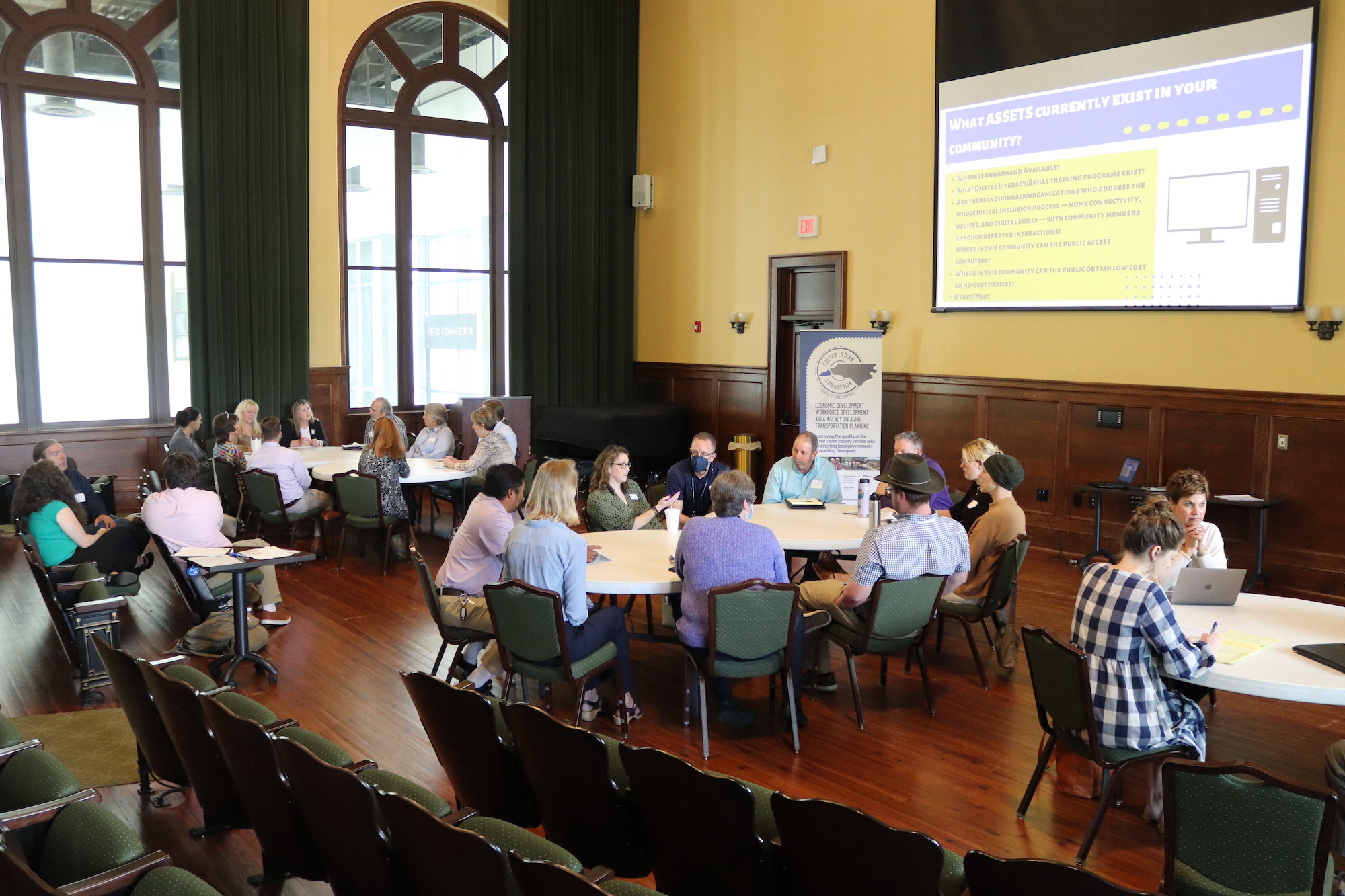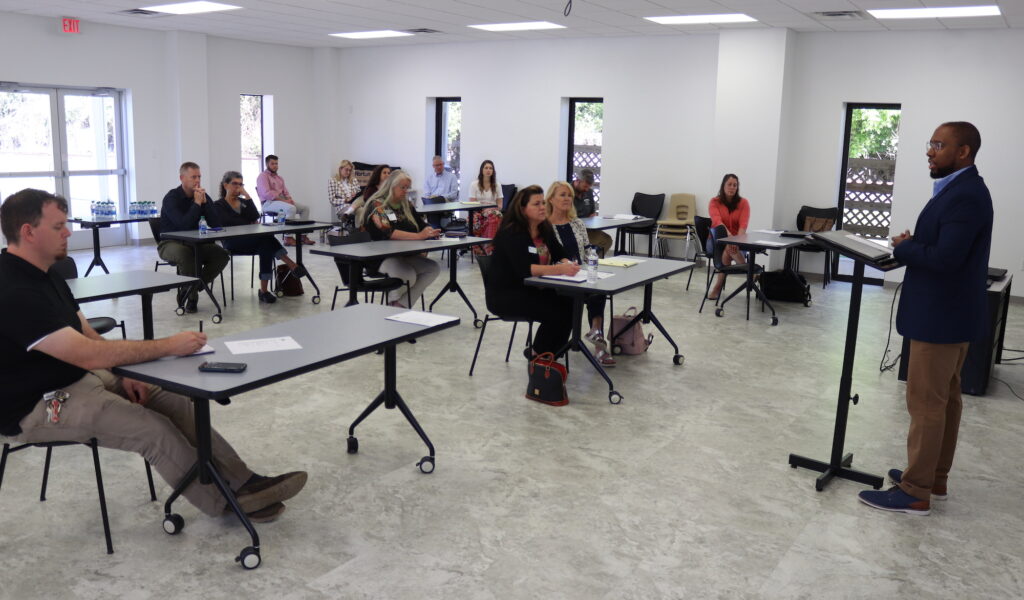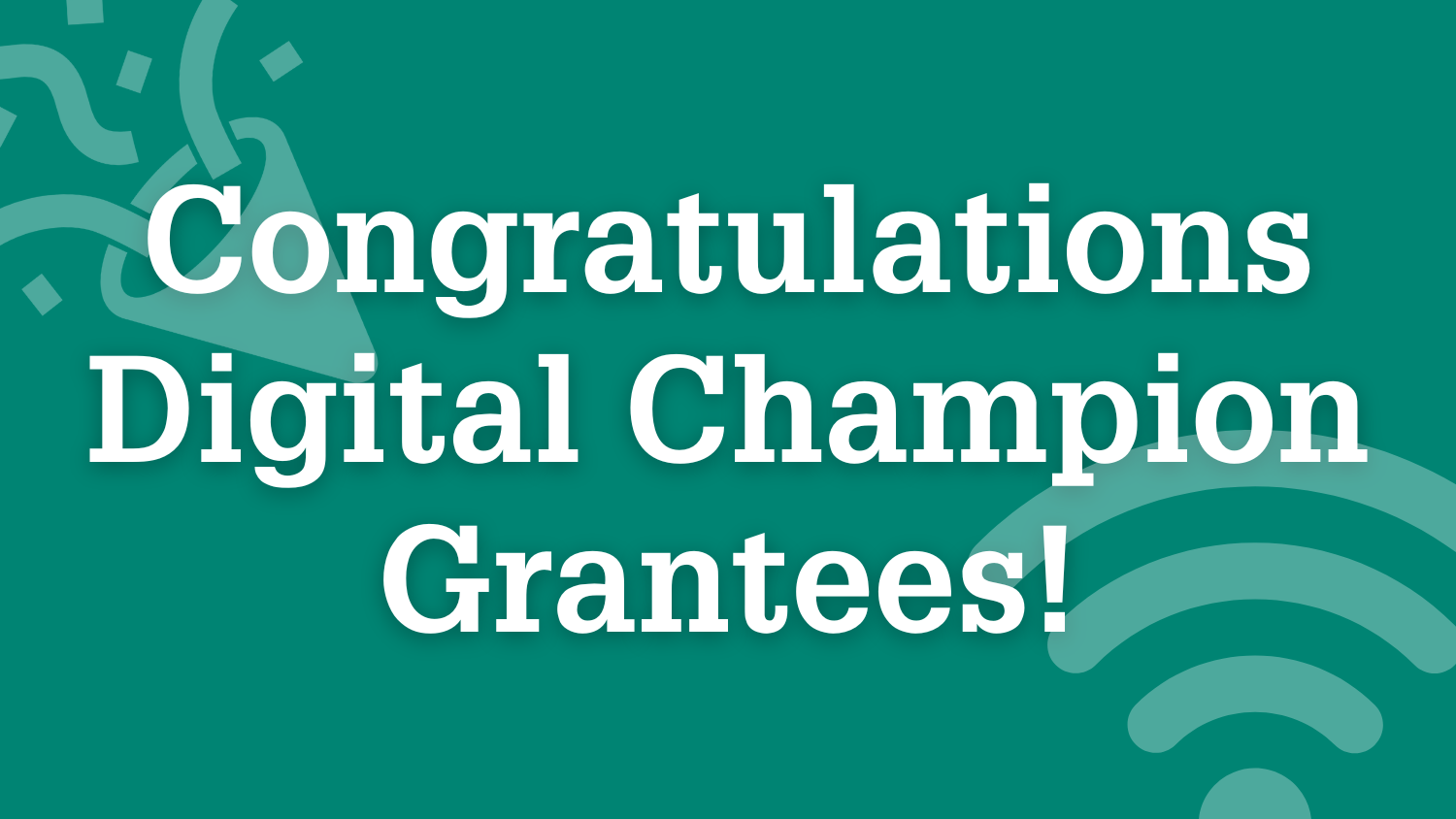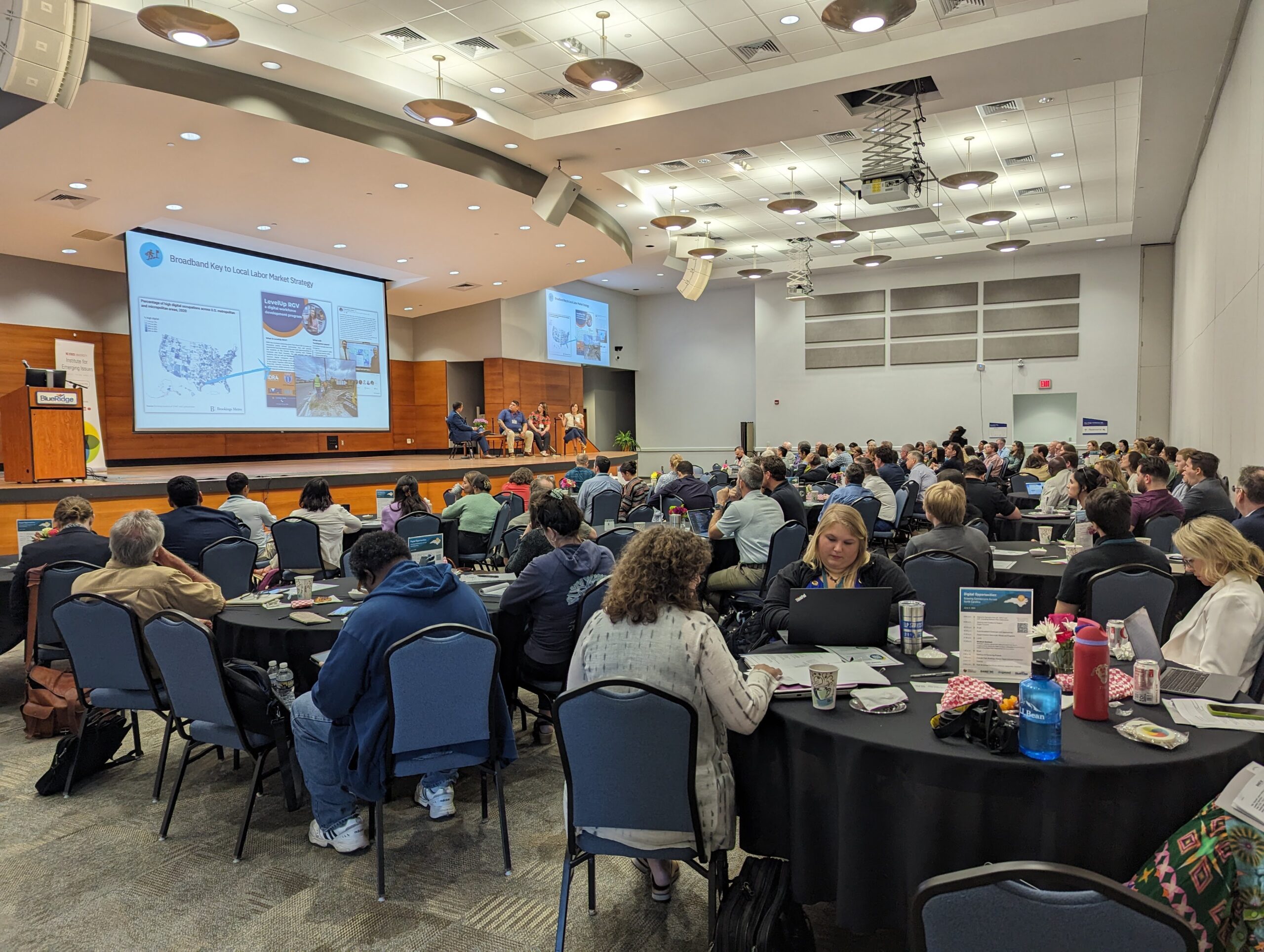Southwestern Commission leads WNC in digital inclusion planning process

The Southwestern Commission held two events May 16-17 to kick off the digital inclusion planning process for seven Western North Carolina counties and the Eastern Band of Cherokee Indians. Creating digital inclusion plans for this area is part of a broader regional effort in the state to connect people to accessible, affordable internet and devices, with principal support from Dogwood Health Trust and participation of five Councils of Government in Western North Carolina.
“We see the importance of digital inclusion and adoption and getting people to take advantage of internet services in our region,” said Southwestern Commission Executive Director Russ Harris. “Looking at the numbers now, we see where we have more people that have access to internet that are not taking advantage of it than we do people who don’t have access to internet, so after working on that supply side of things for the last five years [broadband infrastructure], it’s time for us to transition and work on the demand side of things.”
The events gathered together stakeholders from various groups who will need to work together to bridge the digital divide: community colleges, libraries, schools, nonprofits, churches, and experts in the fields of healthcare, aging, economic development, housing, and more.
At each of the meetings, a representative from Dogwood Health Trust spoke about the importance of digital inclusion to the region’s overall health and wellness.
“Being able to use the internet and afford the internet is not a luxury anymore,” said Sarah Thompson, Dogwood Health Trust Vice President of Impact – Economic Opportunity. “It is a need for people’s overall health and well-being to live a fulfilled and stable life, so that’s why we’re excited to assist with this.”

Maggie Woods, director of Building a New Digital Economy in NC (BAND-NC), gave a presentation on digital inclusion planning and an overview of the BAND-NC program. BAND-NC, a program out of the Institute for Emerging Issues (IEI) at NC State University, aims to build capacity for a larger digital inclusion effort across Western NC through the funding from Dogwood Health Trust.
Individuals from different counties in the region who have been involved in digital inclusion work spoke about their experiences, the needs, and the opportunities they see at the county level. The events concluded with a group activity meant to begin the brainstorming process and encourage collaboration on developing strategies to close the digital divide. Participants divided into groups based on their county and started an asset mapping and needs assessment activity. The initial collaborative activity showed the importance of including more types of stakeholders, including educators, volunteers, faith communities and farmers, into the digital inclusion strategy development.
Creating a digital inclusion plan will be an on-going process, but the region shows a promising start thanks to the work by Southwestern Commission, which will host more county-level planning meetings over the coming months.
###
About Southwestern Commission
The mission of the Southwestern Commission is to improve the quality of life in its seven-county service area by assisting local governments in reaching their goals. Officially known as the Southwestern North Carolina Planning and Economic Development Commission, we cover the counties of Cherokee, Clay, Graham, Haywood, Jackson, Macon, and Swain, the 17 municipalities therein, and the Eastern Band of Cherokee Indians.
About Institute for Emerging Issues
The Institute for Emerging Issues (IEI) at North Carolina State University is a nonpartisan public policy organization focused on the state’s vibrancy and economic competitiveness. Since 1986, the Emerging Issues Forum has attracted leaders in business, education and public policy to discuss issues with profound implications for North Carolina’s future prosperity. For more than three decades, the Forum has helped catalyze the policy reforms, public investments and other proactive responses required to build an enduring capacity for progress in North Carolina.
- Categories:


